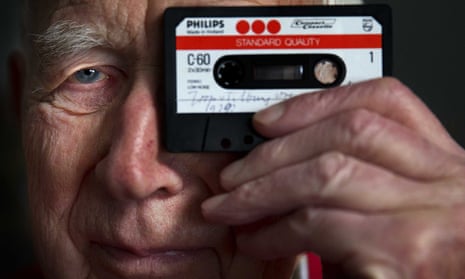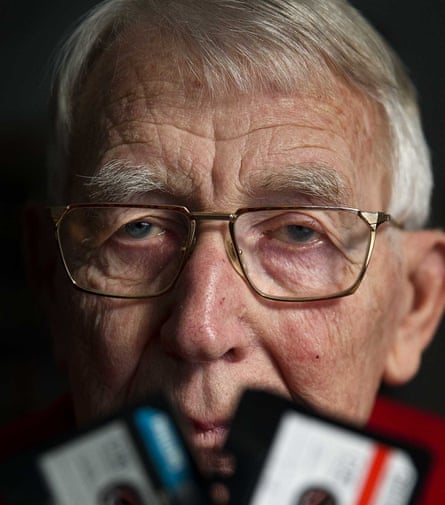Source : Internet

Lou Ottens, inventor of the cassette tape, dies aged 94
Dutch engineer was also instrumental in development of first CD in his work at Philips
Lou Ottens, the Dutch engineer credited with inventing the cassette tape and playing a major role in the development of the first CD, has died aged 94 at his home in the village of Duizel in North Brabant.
As product development manager at Philips, Ottens twice revolutionised the world of music, but he remained modest to the end. “We were little boys who had fun playing,” he said. “We didn’t feel like we were doing anything big. It was a kind of sport.”
Ottens, born on 21 June 1926, showed an early interest in engineering, building a radio as a teenager through which he and his parents could receive Radio Oranje during Germany’s wartime occupation of the Netherlands. He equipped the device with a directional antenna that he called a “Germanenfilter” because it could avoid the jammers used by the Nazi regime.
Following the war, Ottens obtained an engineering degree, and he started work at the Philips factory in Hasselt, Belgium, in 1952. Eight years later he was promoted to head of the company’s newly established product development department, and within a year he unveiled the EL 3585, Philips’s first portable tape recorder, which would go on to sell more than a million units.
But it was two years later that Ottens made the biggest breakthrough of his life – born out of annoyance with the clumsy and large reel-to-reel tape systems of the time. “The cassette tape was invented out of irritation about the existing tape recorder, it’s that simple,” he would later say.
Ottens’s idea was that the cassette tape that should fit in the inside pocket of his jacket. In 1963 the first tape was presented to the world at an electronics fair in Berlin with the tagline “Smaller than a pack of cigarettes!”

Photographs of the invention made their way to Japan, where substandard copies started to emerge. Ottens made agreements with Sony for the patented Philips mechanism to be the standard.
It led to the mixtapes beloved by teenagers across the world and the frustration of the unspooled tape, albeit largely fixable with the insertion and twirl of a disposable pen.
In 1972 Ottens became director of audio at Philips’ NatLab, where he became involved in the next major music innovation: the CD. A collaboration was entered into with Sony and in 1980 the 12cm Philips-Sony CD standard was ready for the world.
More than 100bn cassette tapes and 200bn CDs have been sold. When asked about his regrets, Ottens lamented that Sony had brought out the first Walkman. “It still hurts that we didn’t have one,” he said.
Ottens, who died on Saturday, had little patience with the renewed popularity of the cassette tape – or even vinyl.
“Nothing can match the sound of the CD,” he had told the Dutch newspaper NRC Handelsblad. “It is absolutely noise and rumble-free. That never worked with tape … I have made a lot of record players and I know that the distortion with vinyl is much higher. I think people mainly hear what they want to hear.”





No comments:
Post a Comment